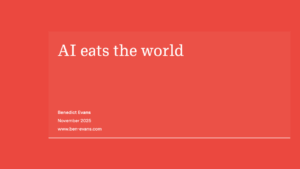
Reflective of its title “5 Laws of Resilient Innovation,” an article posted on the Singularity University site, Brian Solis shares his observation of trends and best practices that help businesses explore ways forward.
Solis starts the piece talking about his concept of Digital Darwinism and why in this current world, companies need to adapt…or die. “Right now,” he writes, “there are new breeds of investors, startups, competitors, and operating models with the sole purpose of exploiting vulnerabilities. In themselves, this is a new form of a competitor, and of digital Darwinism in action.”
He explains the source of the problem: “Most leaders don’t have the experience or vision to innovate, operate like a startup, invent new categories, or compete in uncharted segments. This is not their fault. It’s just a real-world dynamic in which most executives are learning talent, knowledge, and capabilities are deficient. Many (most?) are hired to grow and protect their organizations, not innovate or change. As such, adapting to the times, tastes, and trends is a slow process—so slow in fact that many organizations will not survive. They just don’t know it yet because they’re still drafting the momentum of past success. But those models only buy time until market share, revenue, and margins start to diminish as new markets and competitors emerge. By then, for many, it’s too late.”
He hopes his list of Laws of Resilient Innovation inspires readers and sparks creativity that will either lead or empower leaders to innovate forward.
1: Accept digital Darwinism as a threat—and an opportunity.
2: Embrace an open mindset to receive new opportunities for innovation and transformation.
3: Innovation starts with a shift in perspective.
4: Accept accidental narcissists (generation-connected aka Gen-C) as your future customers today, and design for them.
5: Give innovation a purpose and organize around that purpose.
Solis concludes:
“In my research, I’ve found the most advanced companies are people at the heart of innovation via human-centered design. By taking a truly customer-first, empathetic, and purposeful approach to understanding and predicting preferences, expectations, and aspirations, innovation becomes so much more profound and impactful. This leads to creative, new, and game-changing products, business models, and processes that create new value, change behaviors, and drive growth.”
Read the entire article here: https://su.org/blog/5-laws-of-resilient-innovation/





Leave a Reply